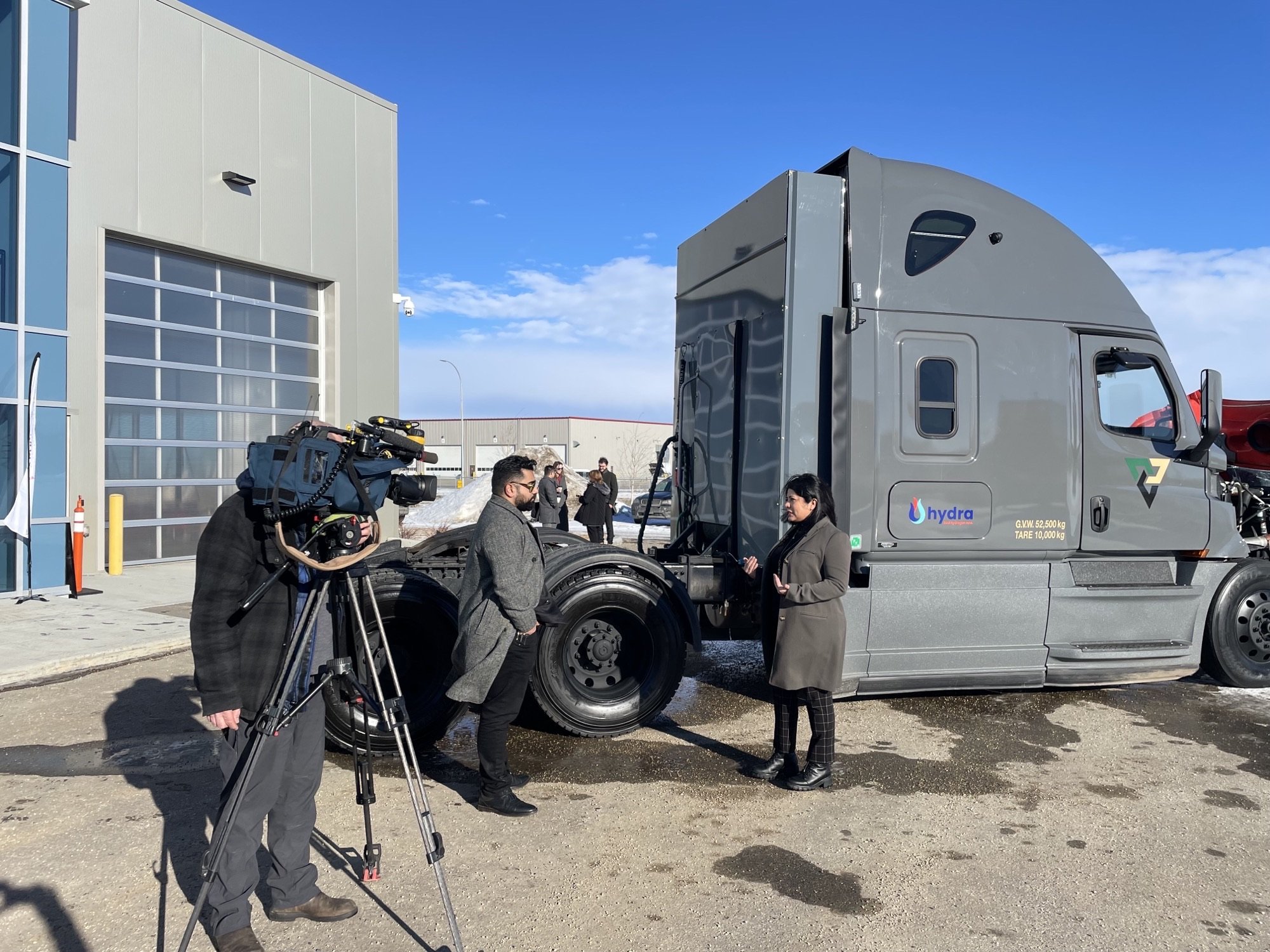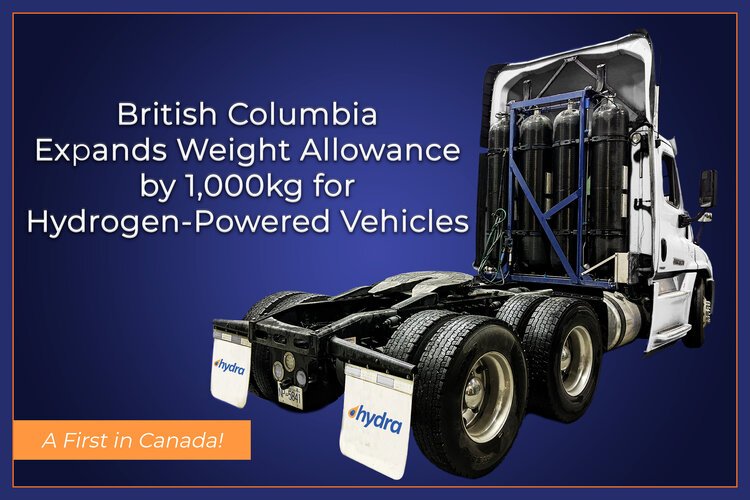
A Transition to Net Zero
From Vancouver to the World
Support home-grown innovation that advances circular economies by enabling existing diesel trucks to run up to 40% on hydrogen in a matter of two days
Hydra’s flagship project in Prince George will create over 20 jobs and over $100 million invested in the northern region of B.C.
We chose Vancouver as the home for Hydra knowing it had the perfect ingredients to help us compete on the world stage. Expertise in hydrogen began here decades ago with Ballard, and continues with others like Loop Energy, Ionomr Innovations, and PowerTech Labs. The talent pool here runs deep, both from the existing workforce and specialized university programs, allowing Hydra to access the top innovative thinkers in the field as well as easy access to hydrogen equipment.
Most importantly with BC and Canada’s supportive policy environment via BC’s Low Carbon Fuel Standard, the Government of Canada’s Clean Fuel Standards and Investment Tax Credits we can achieve diesel parity pricing. This provides fleets the business case to adopt low carbon alternatives at scale.
-
Hit GHG Targets Faster
In Canada, heavy-duty/Class 8 trucks account for 3.3% of all vehicles on the road but contribute 37% of all transport-related emissions. We focus on shifting existing diesel truck engines to co-combust with hydrogen reducing emissions up to 40% per truck today transitioning to 100% down the road.
Fully tested and already delivered to commercial clients, fleets are able to convert their existing vehicles now. Hydra continues to invest in improving our technology's fuel efficiency and diesel displacement with our goal to get to 100% HICE in the next 5 years.
-
Doesn't Compromise Performance
Instead of promising entirely new vehicles at some point in the future, Hydra has taken a more practical approach that retrofits existing heavy-duty trucks with a proprietary hydrogen-diesel, co-combustion conversion kit that is fully reversible and optimises truck performance and fuel efficiency regardless of payload and weather.
We can meaningfully reduce emissions with a proven solution that works in the harsh Canadian winters and has the torque to run on challenging terrain without subtracting payload.
-
Affordable Technology
As of 2023, 83.2% of Canadian trucking employers are considered micro, employing less than 5 people with an average revenue in of $304k/year. With current prices for new zero-emissions vehicles in excess of $1M CAD there are no cost-effective zero-emission vehicles (ZEV) available on the market for heavy-duty trucking.
Hydra’s solution allows fleet owners to use their existing vehicles, with no cost for the conversion, and no increase in operational expenses. With increased fuel efficiency of 2-5% and less maintenance required, there are actually cost savings.
How government can support decarbonising transportation
The majority of government policy focuses on brand new medium and heavy duty trucks, missing the opportunity to significantly improve the emissions performance of existing trucks which is critical give the 18 year average lifespan of a class 8 truck. Too often, the net-zero policies can be black and white not recognising that to get to ambitious GHG targets will take all solutions with fleets choosing which EV, FCEV or hydrogen co-combustion option best meets their nuanced operational needs such as the required range and payload.
Co-combustion plays an important role as a low-emission vehicle (LEV) enabling the transition to hydrogen in heavy-duty trucking. Zero-emission vehicles (ZEVs) have a prohibitively high cost, and most are still in testing and demonstration phases. Additionally these trucks are only being developed at the 44,000 kg size, and are unavailable in the 63,500 kg GVW more common in Canada. Fleets would need to purchase two ZEV trucks to replace each diesel one to make up the lost payload from these smaller vehicles.
Hydra has the necessary weight exemption in British Columbia to account for our retrofit kit and is working on similar endeavours in other provinces we intend to become active in. We continue to advocate on behalf of LEVs to ensure fair treatment in tax exemptions available to ZEVs.










